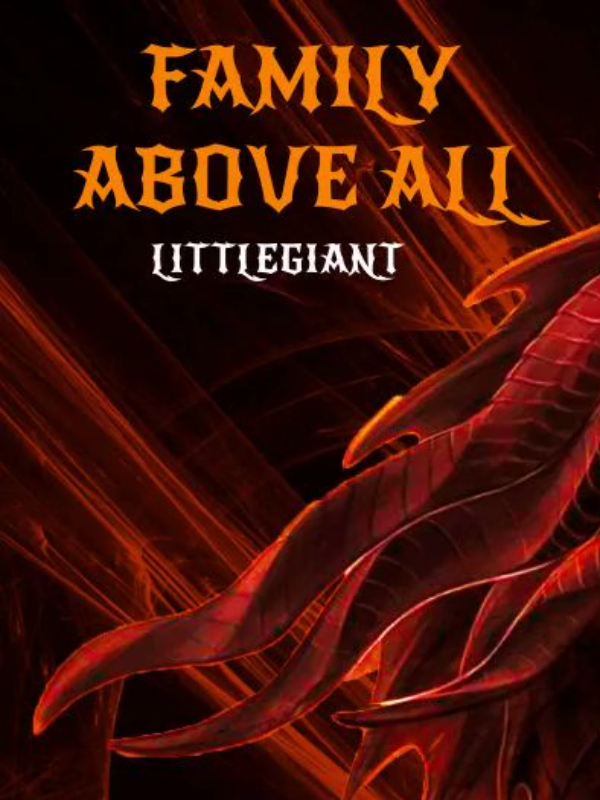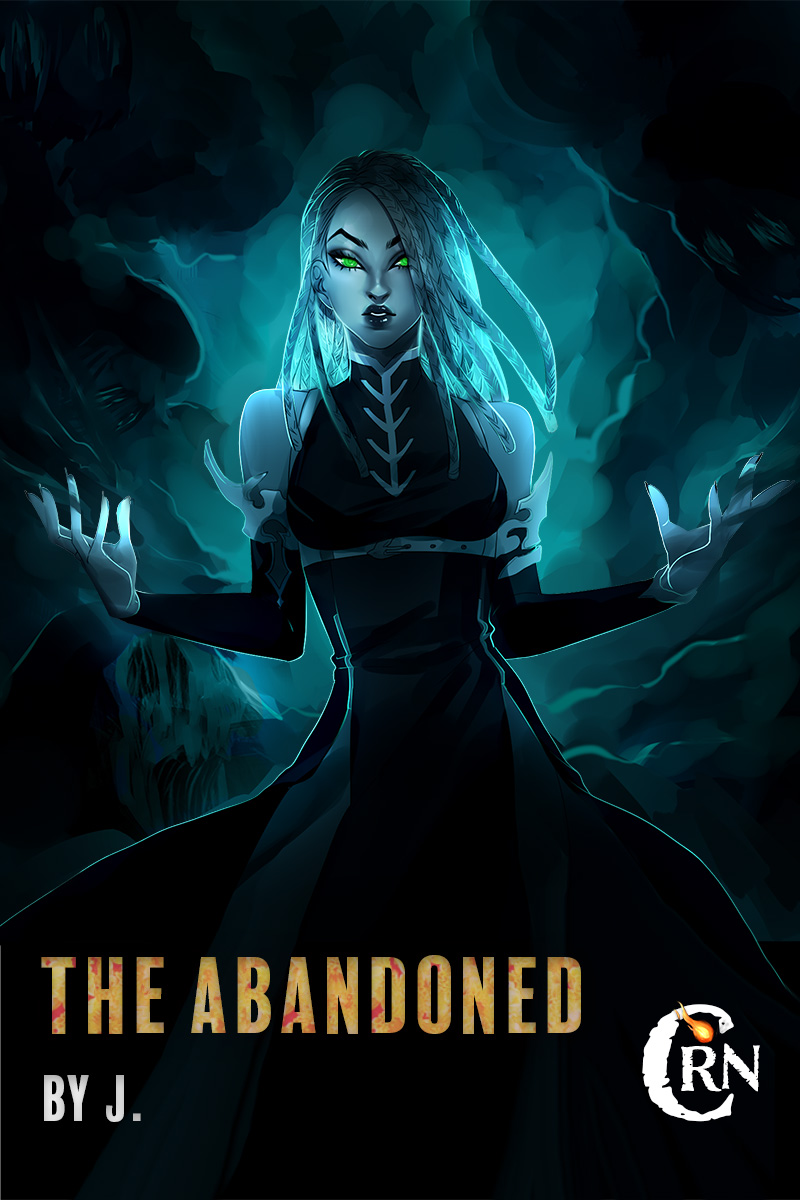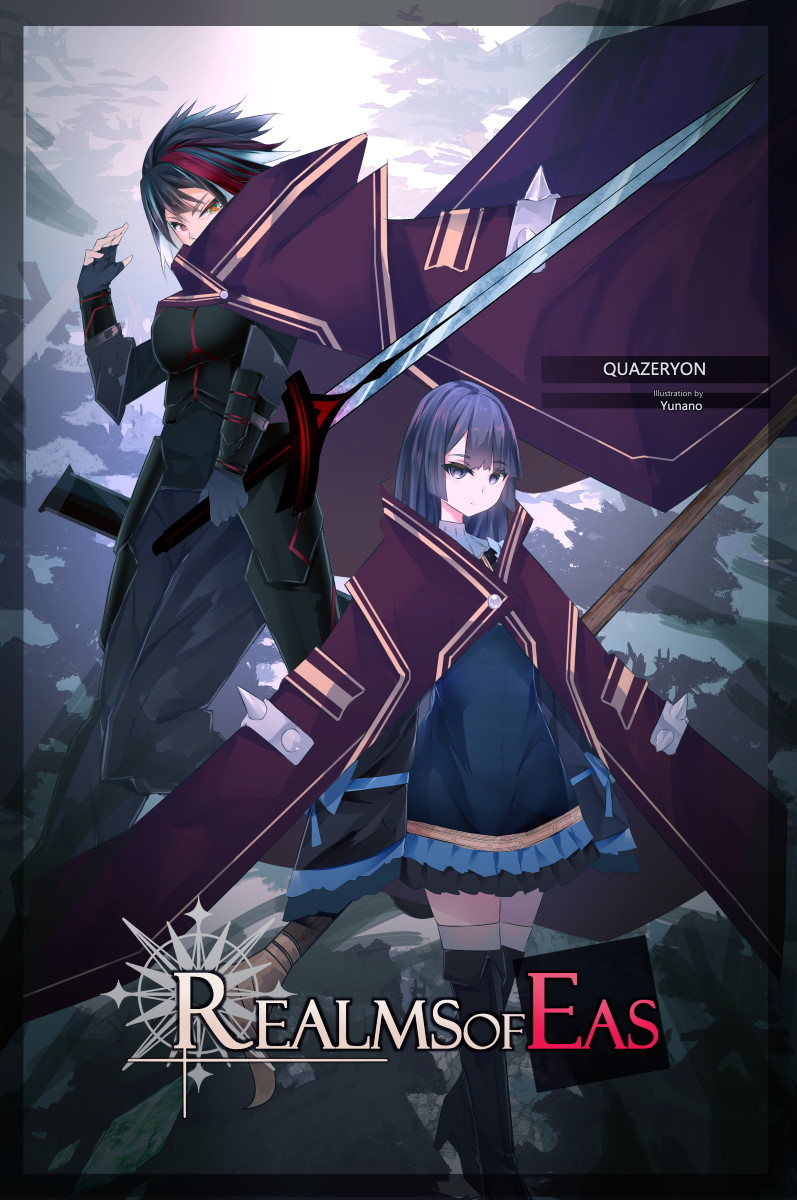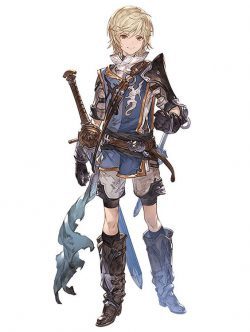It was after the ninth bell in Cohenburg, a village fourteen miles south-southeast of Wenderguard, the mainland port that protected the central bridge. Atilonian occupation had converted its once-idyllic farmland into a staging area for their army. Gone were the fields of lentils and sweet peas; in their place were tents enough for thirty-thousand men, space for their cafeterias, their latrines, and their tanks.
That modern innovation, terrible in its power, rolled beside Cid and Zelaphiel as the inquisitor led the angel down main street. The Atilonian AF-Mizara—nicknamed the Tank for its similarity to the adventurer role—was five tons of angled steel armor with a single high-caliber turret on a horizontal traverse. Its armor deflected small arms fire and the battering of swords, and its main gun turned automatons to broken heaps of bronze. Even soldiers blessed with mana, or the celebrated adventurers, could be turned to paste.
Zelaphiel stopped to watch the tank pass. Its 10-cylinder engine thundered and black smoke billowed from its tailpipes as it rolled onward. It was so heavy that its treads crushed Cohenburg’s old-world street, and as the road crumbled, so did the street-side buildings show their wounds. Fist-sized holes had punched through their brick walls and their wooden interiors had been burned by fire. Their windows had melted where black marks like ashen halos remained.
“Master Zelaphiel!” Cid shouted from up ahead, waved his hand.
The angel turned his head. “I understand,” Zelaphiel replied. “I’m right behind you!”
Their brief exchange was right and proper, and more in line with pedestrian expectations.
Brown trucks followed the tank, hauled rows of soldiers—clutching their sacks or their rifles—on the backs of their flatbeds. They were young men, mostly, but some were still children and eager for glory. They had been shipped from the border guard in anticipation of the battle Zelaphiel was set to approve. The veterans called them blue-patterns, because their clothes were so clean, but it was another way to say they were just out of boot camp.
Those that recognized Zelaphiel, by his uniform or his golden eyes, were understandably awe struck. They were probably from the hinterlands, or the sticks, and had never seen an angel in their lives. Yet they knew the stories their fathers and mothers told, what they read in the state-published journals, and glean from papers that reached their frontier homestead. A white uniform meant an individual served Achlesial, and golden eyes meant the power of their god surged through their body.
They talked and smiled among themselves, because they knew that Zelaphiel’s presence meant Achlesial was on their side. Their life had gone from mundane to extraordinary in a moment. They were in the legends; the stories their grandparents told of men and angels fighting side by side! Those young men doubtlessly wanted to cheer and whistle, and draw Zelaphiel’s attention for a boon or blessing, but not one of them raised their voice.
Angels commanded respect and admiration in equal parts, but fear outweighed them both, for they were not like humans. Those fresh-faced blue-patterns, knew mostly rumors, but it was more than enough to keep their mouths shut. Angels were perfect, timeless warriors that had lived for ten-thousand years or more; they possessed impeccable wit, incalculable cunning, and physical strength that could lift the Mizara tank with one hand. It was taught by the church that Achlesial’s angels were so blessed by the god that death could not touch them.
The statuesque Zelaphiel was not a man in their eyes, although he walked as they did, and held his shoulders straight and his head high like the proudest of mortal kings. He was more like a noble animal, such as a tiger or a lion. He was to be respected and appreciated, and left to work alongside the inquisitorial minder, for the betterment of the empire.
The attention didn’t escape Zelaphiel’s notice. If they knew how Cid treated me, he thought with a small smile. Their eyes would probably pop out of their heads. NPCs… have a difficult time with nuance.
Cid stopped ahead and raised his arm, signaled for the next truck to stop. When it braked, he gestured for Zelaphiel to cross. There was a courteous smile on his face, like a butler had laid out their coat so their master could cross a puddle. Zelaphiel saw something else in his black eyes.
“I am one of the most dangerous things in all of Atilonia,” Zelaphiel imagined in Cid’s polite, but condescending manner. “And look, I’ve used my immense power to help you cross a busy street, like you were a child. Or, some sort of dog.”
The angel chuckled.
He isn’t afraid of us, he thought. I like that.
“My lord!” a man shouted while Zelaphiel crossed the street. “My lord angel! Are we going to win?!”
Zelaphiel turned his head to find a blue-pattern had stood among the soldiers waiting on the flatbed. Activate HUD, the angel thought and his field of view was populated by information.
[Target: Matteo Venturi] the system spoke to his mind in his own voice. [HP: 100.] [MP: 0.] [Estimated age: 16] [Total known skills: 0] [Total known spells: 0] [Total abilities possessed: 1]Zelaphiel frowned. He has an ability?
That information wasn’t exceptional on its own. An adventurer, for instance, could gain many abilities in their life time. What caught the angel’s eye was its singular presence in an otherwise mana void individual. He knew that he could scan the entire flatbed, or all the trucks in the convoy, and find no abilities among them.
[Threat evaluation level: 1.]Zelaphiel’s eyes rounded with sudden recognition. Ahead of him, in the flatbed of a transport truck, was a boy in an ill-fitting blue greatcoat. His short, messy hair was brown, his dull eyes were brown, and his skin was olive, in the complexion of ethnic Atilonians. He looked like a farmer, or a laborer and in the empire, there were certainly ten million or more similar NPCs.
None of them would rise to a threat level of 1. Zelaphiel swallowed. What could this child have?
The boy appeared worried, but not for the angel’s silence. There was a sense of fear in those typical eyes, a common sentiment that the angel would have otherwise ignored. ‘Are we going to win?’ was the question he asked, but not the question he wanted answered.
“Am I going to survive?”, Zelaphiel thought. All the blue-patterns are asking that same question, but you ‘Matteo’ might live long enough to find your answer.
Cid leaned toward the angel’s ear. “I have his unit code, we will handle him tonight,” the inquisitor whispered.
Zelaphiel turned from the street. Handle him? he wondered. Is that a euphemism?
The truck’s engine roared and smoke belched from its exhaust pipe. The breaks hissed and the convoy started moving. “My lord!” the boy shouted again.
Oh, well, the angel thought. The inquisition has him now. Deactivate HUD.
Cid stepped ahead of Zelaphiel and gestured toward a grand brick building. “This is the army’s forward headquarters,” he said loudly, so to be heard above the moving trucks. “The command staff are waiting inside, my lord.”
“Then let’s not delay,” Zelaphiel said and Cid led the way.
Of all the buildings in Cohenburg, the municipal courthouse was the largest. It was the center for legal functions, the seat of its mayor, and it served as a schoolhouse for a class of three-hundred students. Ostensibly there was a reinforced cellar to serve as a bomb shelter, but air bombing was in its infancy and the quality of that protection was dubious. Nevertheless, when the Atilonians attacked and the village burned, the courthouse was left intact for that reason.
Inside, the uniformed officers of three different military branches hurried about their business. There were the blue coats of the army, the dark-blue coats of the navy, and the tan coats of the air legion. Among them, Zelaphiel spotted a few black coats; the inquisition was present as well. Stations were setup in the entryway and the adjoining rooms, where repurposed children’s desks were used for printers, folders, and letters.
As the angel followed his inquisitor escort, he navigated a web of cables that connected lamps, technical instruments, and the army’s new radio transmission devices. Nearby, above the chatter of enlisted officers, he heard the thrum of portable mana generators. A war waged by mana-less Atilonians was still powered by mana after all.
Whenever he was recognized, an officer stopped to bow, but Zelaphiel paid them no attention. He followed Cid through the courtroom, toward the back of the building, where a door led to the basement sub-level. It was dark and dreary, lit by warm fluorescent bulbs. Zelaphiel wiggled his nose as he caught the scent of cigar smoke and a small smile appeared on his face.
“After you,” Cid said and pressed the handkerchief to his nose.
The cellar’s original furnishings: Benches, cupboards, stores of survival food and gas masks, had already been removed. Zelaphiel found not a disused bunker, but a fully operational command center staffed by the military’s three major branches.
In the center of the room was a bright under-lit table with an excellent map of the local topography laid over top. Men appeared to argue as one puffed on a cigar. Long sticks were traded between them and miniatures of soldiers, artillery, and tanks were slid about the board. Meanwhile the walls crackled with the sound of cellophane as wheels of memory tape turned in their cabinet-sized computation engines.
Zelaphiel’s presence didn’t go unnoticed, but not everyone noticed him at the same time. One by one the command center slowed to a halt, until only two men remained preoccupied with their tabletop game.
“Ehem,” Cid cleared his throat.
The men looked up and immediately snapped their heels together. “Special Inquisitor and Lord Angel,” the one in the light-blue dress uniform said. “I apologize for my distraction. I am Second General Luca Stefano, welcome to the forward headquarters.”
The general bowed and the rest of the personnel quickly followed suit.
“At ease,” Cid said. “We apologize for our own tardiness. The lord angel was given many directions by Lord Achlesial and he made to be here with all due haste.”
The general straightened out. “But of course,” he said. “I wouldn’t dare question the Lord. This visit alone is an incredible blessing and I am deeply honored that Achlesial has seen us worthy of his attention.”
Cid made a thin smile. “Then, let’s get on with it,” he said and stepped further into the room.
“Yes,” Zelaphiel said. “Let’s hear this battle plan of yours.”
Those few words, spoken thoughtlessly, were enough to make career soldiers tremble. They did not quiver like frightened children, but rather their hearts swelled with opportunity. They stood in the presence of Achlesial; they had the ear of his very messenger! One good word from him and their family could prosper for centuries; their names could be written into the books of fortune, health, and nobility. It was their chance to shine and they wanted desperately to please.
The naval liaison in the dark-blue dress suit squared his shoulders. “Straight away,” he said.
The air legion liaison in the tan dress suit made a sharp salute. “At once,” she said.
“Absolutely, of course,” general Stefano said.
The three glared across the table and the room became tense. The rivalry between the army and the navy had worsened with the prominence of the air legion, and now they had Achlesial’s attention.
They had to impress.











